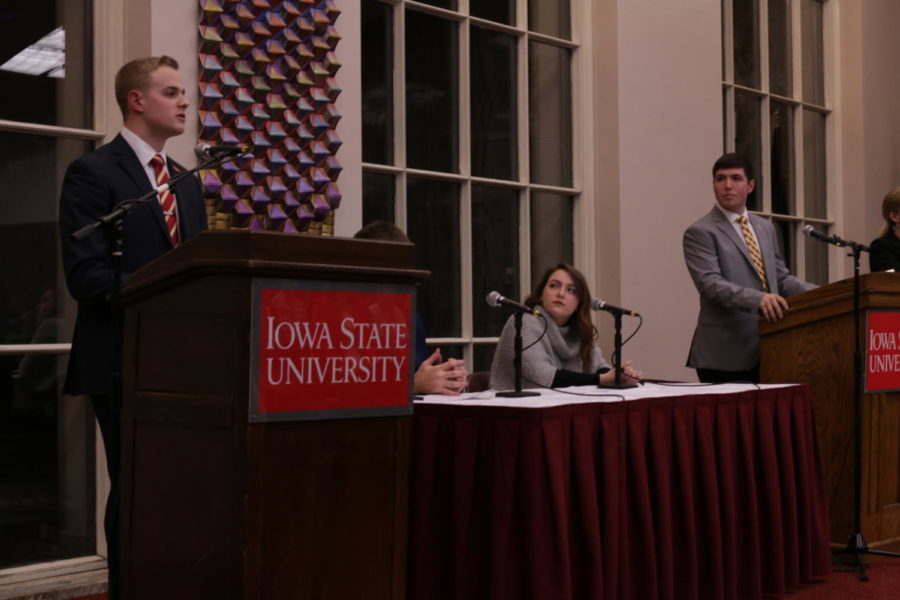How to vote for Student Government representatives, MU referendum
Student Government presidential candidates Conner Tillo and Cody West square off for the first and only debate Feb. 23.
March 6, 2017
Campaign season is coming to an end for Student Government candidates. Students can make their votes count in the Student Government’s yearly elections on Tuesday and Wednesday.
On Tuesday, all eligible students will be sent an email with a brief blurb from the election commissioners, as well as a link to an online ballot.
After entering their university ID and residency information, students will be able to cast their votes between Tuesday and Wednesday.
“It makes it convenient for students, who have busy schedules,” Noah Collins, the Student Government’s election commissioner, said regarding the online election process.
Using the online ballot, students can vote for their college and residency representatives, Student Government president and vice president, and two referenda: the MU renovation fee and the transfer of representation of Campustown residencies to the UROC constituency.
Why should you vote?
“Your student fee is allocated to the Student Government, and they portion out who it goes to,” Collins said.
This means that your votes can determine how your student fees are spent.
Also, Collins noted, the president and vice president of Student Government represent the university directly at the state level, and to the Board of Regents. With issues such as tuition increases and other matters at hand, Collins said it is important to vote in these elections.
With the MU referendum being voted upon on the same ballot, Collins expects a greater voter turnout than years past, as this is an issue that directly affects all students.
Collins said students often don’t vote because it’s inconvenient, they don’t check their emails or they aren’t aware that the election is even happening.
This year, these issues have been combated with the online ballot implementation, the advertisement of the voting link and campaign initiatives.
Collins suggested a few options for students interested in becoming more involved in future elections: become a candidate, become an election commissioner or get involved in a campaign.







